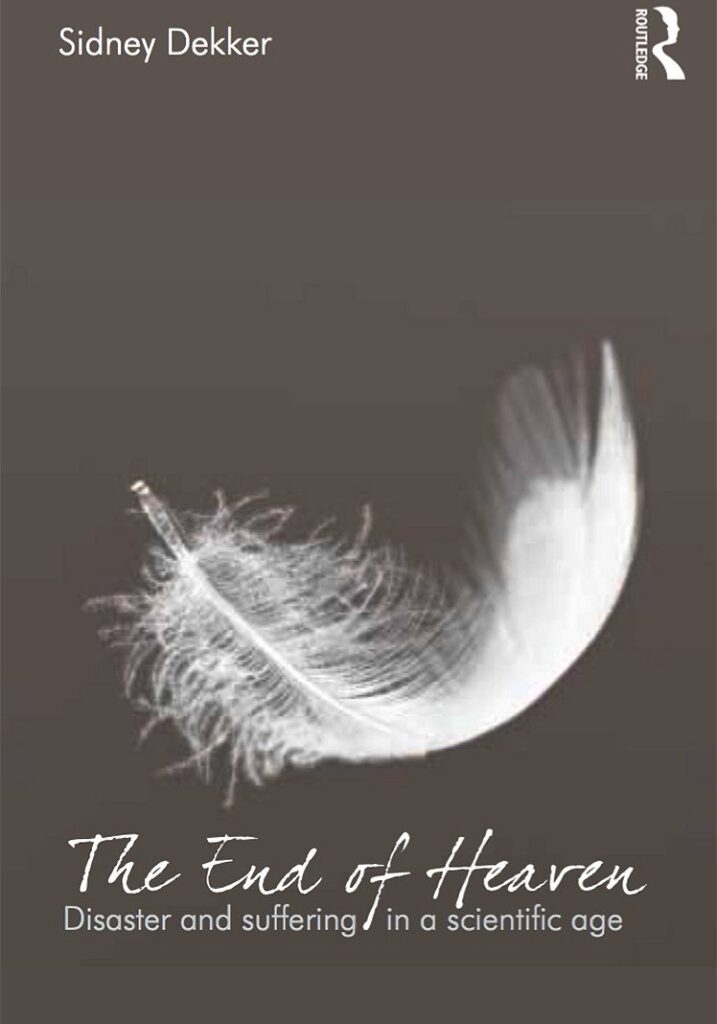Our scientific age has equipped us ever better to explain why things go wrong. But this increasing sophistication makes it harder to explain why we suffer. Accidents and disasters have become technical problems without inherent purpose. When told of a disaster, we easily feel lost in the steely emptiness of technical languages of engineering or medicine. Or, in our drive to pinpoint the source of suffering, we succumb to the hunt for a scapegoat, possibly inflicting even greater suffering on others around us.
How can we satisfactorily deal with suffering when the disaster that caused it is no more than the dispassionate sum of utterly mundane, imperfect human decisions and technical failures?
Broad in its historical sweep and ambition, The End of Heaven is also Dekker’s most personal book to date.
★★★★★
IOSH Magazine
At once wretchedly fascinating and personal and intellectually demanding
